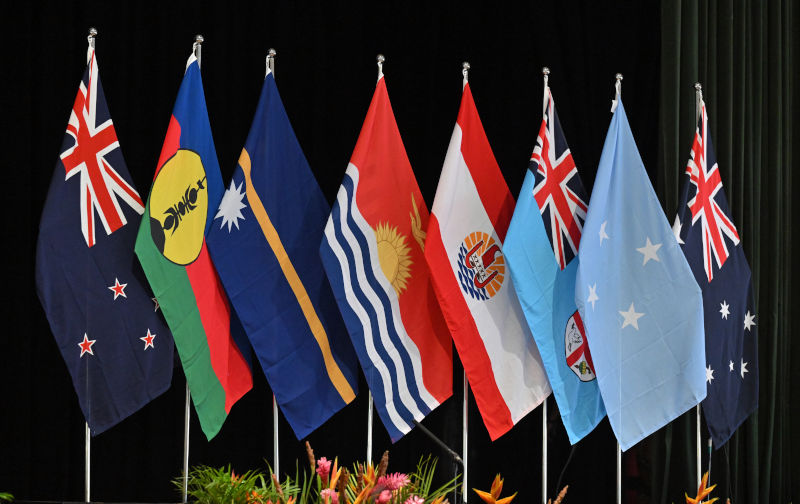Albanese’s sliding doors moment on climate
September 10, 2025
Australian Prime Minister Anthony Albanese has just been handed an unflinching mirror at the Pacific Islands Forum.
The National Climate Risk Assessment makes one thing unmistakably clear: there is an enormous amount at stake for Australia from climate impacts.
For Pacific nations, none of this is news. Rising seas, stronger cyclones and dwindling fish stocks have long made them the moral compass and global leaders on climate action.
This is Albanese’s sliding doors moment: lock in a strong climate target, lock in trust with the Pacific, lock in COP31, and unlock Australia’s place as a renewables superpower.
It is a sobering but clarifying moment. We know what’s at stake. Leaders at PIF54, including the Australian prime minister, know how our ocean states must collectively respond.
A defining choice for Australia
Within weeks, the Australian Government must set our 2035 emissions reduction target – a decision that will shape our economy, environment and global standing for decades.
The debate is already playing out. Some warn that a high target would be too costly, clinging to the logic of the fossil fuel era.
But the majority of voices, from industry leaders to economists, are clear that ambition is both achievable and essential. The choice before us? Hold on to decline or embrace the clean energy future.
The science is equally clear: to keep 1.5°C alive, Australia must cut domestic emissions by at least 90% by 2035 and achieve net zero before 2040. A strong target is not only achievable, it is in Australia’s economic interest. Anything less signals to the world and to investors that we are not serious about climate action or ready to compete in a global net zero economy.
Choosing ambition is also choosing opportunity. A bold target would tell investors Australia is ready to lead in a global clean economy.
Standing with the Pacific
And the stakes reach far beyond a domestic Australian debate. Aligning with Pacific nations on ambition strengthens Australia’s global standing. In the contest between the winners of the clean economy and the laggards of fossil fuels, the geopolitical prize is clear: trust from our neighbours, global credibility to co-host COP31 and leadership to drive the global transition.
The timing is critical. At PIF54, Pacific leaders will call for action equal to the scale of the crisis. For the Pacific, climate risks are not modelling exercises – they are realities measured in lost crops, damaged homes and disappearing coastlines. Australia’s National Climate Risk Assessment now makes it real that Australia is, of course, in the same boat.
Australia is bidding to co-host COP31 with the Pacific in 2026. Co-hosting must mean more than co-branding. The convergence of the risk assessment, PIF, and the target decision gives Australia a chance to show the world that we hear the science and are ready to act with ambition.
Risk demands resolve
When risks are clear, we step up. We did it with road safety, with public health, with COVID, with economic reform. Climate must be no different.
The risks and urgency could not be clearer. The Earth is now 1.2°C warmer than in pre-industrial times. Without drastic emissions cuts, we will lose the chance to steady global warming at 1.5°C, a limit beyond which impacts intensify and adaptation falters. Scientists warn we have just two years to keep 1.5°C within reach.
By setting a strong 2035 target aligned with science, and working in genuine partnership with the Pacific, Australia can turn risk into resolve, and responsibility into leadership. At PIF54 , Australia can show it is ready to walk alongside Pacific nations – respecting their leadership and contributing with action of its own. Together, we can signal to the world that decisive climate action is possible, and that a co-hosted COP31 can be a moment of shared strength.
Dermot O’ Gorman is the CEO of WWF-Australia. Kesaia Tabunakawai is a Governor at WWF-Australia and has previously served as the WWF Pacific Representative.
The views expressed in this article may or may not reflect those of Pearls and Irritations.

